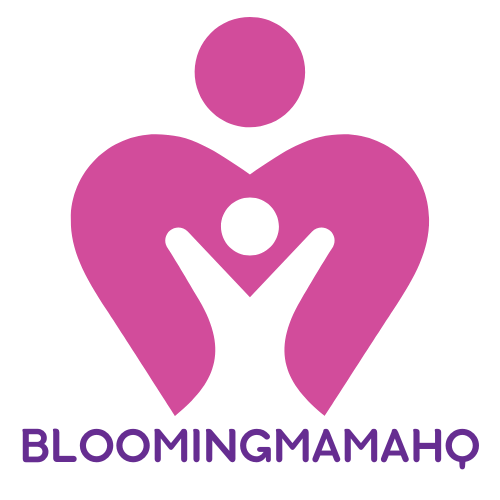Embarking on the college journey can feel like stepping into a wild amusement park—thrilling yet slightly terrifying. With roller coasters of exams and bumper cars of late-night study sessions, it’s easy to feel lost in the chaos. But fear not! This college guide is your trusty map, helping navigate the twists and turns of campus life with confidence and a dash of humor.
Table of Contents
ToggleWhat Is a College Guide?
A college guide serves as a comprehensive resource for students navigating higher education. This guide offers essential information about academic programs, campus services, and extracurricular activities. It addresses the specific needs and challenges students face during their college journey.
Moreover, a college guide includes practical tips, from study strategies to time management techniques. These insights help students maximize their academic potential and manage their schedules effectively. In addition, it covers financial aspects, such as scholarships, budgeting, and financial aid options.
Students benefit from exploring various aspects of campus life through a college guide. Resources for mental health support and wellness programs are also highlighted. General advice on forming connections, networking, and engaging in community service plays a vital role in personal development during college years.
The guide emphasizes the importance of understanding school policies and academic requirements. Familiarity with grading systems, course prerequisites, and graduation criteria ensures informed decisions. Orientation programs often supplement this information, easing the transition into college life.
Overall, a college guide equips students with knowledge and confidence to seek help when needed. Students gain a roadmap for their academic journey, helping them embrace challenges as growth opportunities. Finding the right resources, both on and off campus, remains crucial for navigating the college experience successfully.
Key Components of a College Guide

A college guide contains essential information that supports students throughout their academic journey. The following components explain critical aspects of the college experience.
Academic Programs
Academic programs introduce students to various fields of study. Each program leads to specific degree options, offering a mix of majors and minors. Students explore consequences like job opportunities and earning potential when selecting a field. Universities often provide detailed descriptions of coursework along with faculty expertise. Resources such as academic advising help students align their interests with available programs. Research into internship opportunities also enhances career readiness and skill development.
Admission Requirements
Admission requirements outline the criteria for acceptance into a college or university. Most institutions need applications, transcripts, and standardized test scores. Some programs may also require letters of recommendation or personal statements. It’s important to check deadlines and specific requirements for each institution. Meeting these criteria plays a significant role in gaining admission. In addition, students should understand the differences between early admission and regular admission processes.
Campus Life
Campus life offers a vibrant community full of opportunities for social engagement. Dormitories provide a living environment and foster friendships among peers. Students can join clubs and organizations that align with various interests, from academic groups to cultural associations. Events like workshops and social gatherings promote networking and skill building. Access to campus facilities, including gyms and libraries, also enriches the college experience. Understanding campus resources supports a well-rounded college journey.
How to Choose the Right College Guide
Choosing the right college guide involves careful evaluation. Essential steps include assessing credibility, identifying personal needs, and examining resources available.
Assessing Credibility
Start by checking the author’s credentials. Reputable guides typically come from qualified professionals with experience in education or counseling. Look for updated information regarding policies, programs, and trends. Reading reviews and testimonials can offer insights from other students. Incorporating verified sources enhances the guide’s reliability. Prioritize resources that provide references, statistics, and links to official websites for deeper understanding. Evaluating the organization behind the guide adds another layer of credibility. Trusted educational institutions or research organizations often publish the most accurate information.
Identifying Personal Needs
Identifying personal needs helps narrow down choices. Reflect on academic interests and career goals to ensure alignment with selected programs. Consider financial situations, including tuition costs and scholarship opportunities. Campus culture also plays a significant role; prefer guides that emphasize social engagement and support services. Seeking information relevant to extracurricular interests enhances overall experience. Evaluate geographical preferences by examining location and its impact on daily life. Encompass mental health resources in the search for a suitable college guide, as support is crucial during college years. By clarifying these factors, students can choose guides that cater to their unique educational journeys.
Popular College Guides Available
Numerous college guides assist students in navigating their educational journey effectively. Understanding these resources helps students make informed choices.
Print Guides
Print guides, such as The Princeton Review and Fiske Guide to Colleges, offer comprehensive insights into colleges and universities. These books cover topics ranging from admission processes to campus culture. Students find detailed profiles of institutions, including academic programs and extracurricular activities. Many print guides provide rankings and evaluations based on various criteria, helping students identify suitable options. Accessibility to local libraries or bookstores enables students to easily obtain these resources.
Online Resources
Online resources, like CollegeBoard and Niche, offer dynamic and up-to-date information for prospective college students. Interactive websites feature tools for comparing schools, reviewing admission requirements, and exploring financial aid options. Forums and blogs available on these platforms allow students to connect with peers and current students for first-hand experiences. Utilizing mobile-friendly applications enhances accessibility for on-the-go research. Overall, online resources provide up-to-date, diverse content to support students’ college decision-making.
Navigating college can be a complex journey filled with both excitement and uncertainty. With the right college guide in hand students can approach this adventure with greater confidence. By understanding academic programs campus life and available resources they can make informed decisions that align with their personal and educational goals.
Embracing the challenges of college life as opportunities for growth will set the foundation for a rewarding experience. Armed with practical tips and insights students are better equipped to thrive in their academic pursuits and enjoy the vibrant community that college offers. The journey may be daunting but with the right tools it’s a path toward success and self-discovery.



